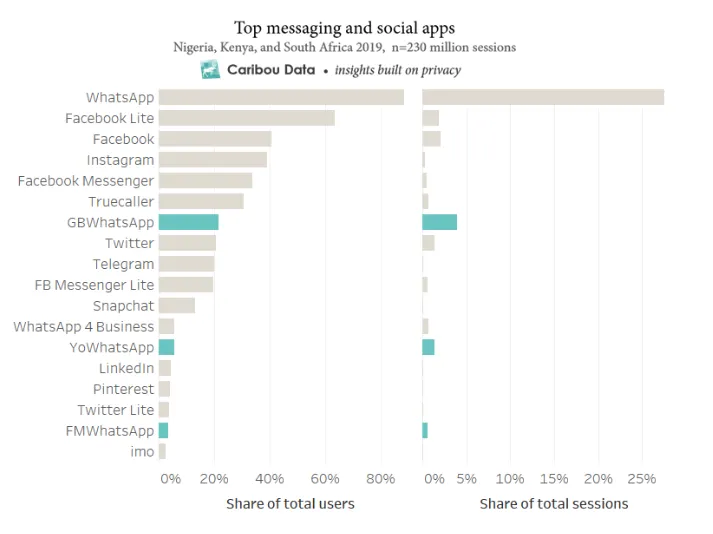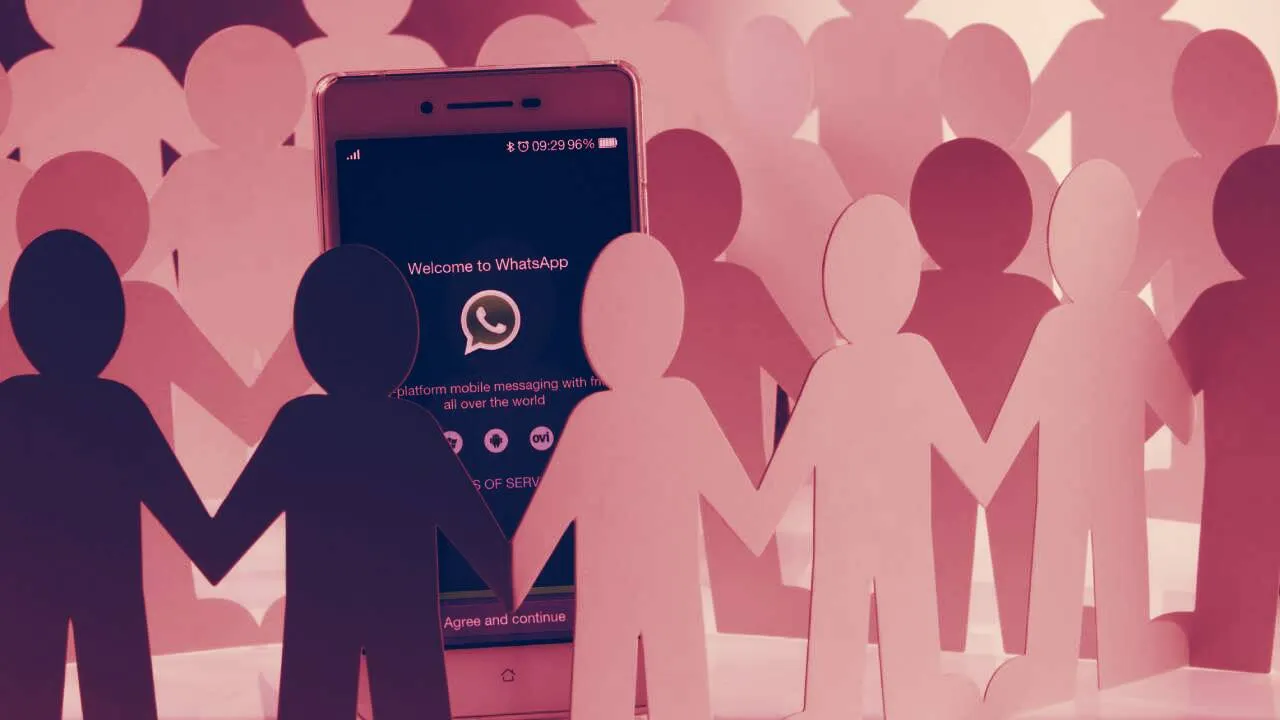In brief
- WhatsApp clones are becoming increasingly popular in Africa, with over 20% of people using them over the original.
- These clones are often shared peer-to-peer, in a decentralized manner.
- The WhatsApp clones have extra features, but compromise on security.
WhatsApp has become so popular in Africa that knock-off versions are witnessing faster adoption and innovation than the Facebook-owned original.
These so-called “WhatsApp mods” attract users with added features—but users risk pitfalls, including a lack of protection. They’re also spread in a decentralized, peer-to-peer manner—meaning that clamping down on them is a challenge.
WhatsApp’s acclaim is understandable. A free, all-in-one messaging, file sharing, and video calling service. What’s not to like? Its global appeal has led to the emergence of rivals, the most famous of which is China’s WeChat.
Now, according to Quartz, hordes of WhatsApp derivatives have emerged in Africa, trading on the original’s name with variants like “YoWhatApp,” and “GBWhatsApp.”
According to insights from analytics firm Caribou data, within a study of more than 4000 panelists from Nigeria, Kenya, and South Africa, 20% of total users opted for WhatsApp clone “GBWhatsApp.”

Rather than being downloaded via an official app store, these WhatsApp facsimiles pass from user to user, shared from one device to the next—almost akin to peer-to-peer file sharing. As a consequence of this decentralized sharing, none of the clones show up on any major app store, evading potential shutdown. Incredibly, the replicas are still compatible with WhatsApp proper.
Why are people using WhatsApp clones?
According to Bryan Pon, co-founder of Caribou Data, the popularity of these WhatsApp clones is a simple matter of practicality:
“They’re obviously a big draw for a lot of people because you can do a lot of things with them that you can’t do with WhatsApp,” said Pon, speaking to Quartz.
These independent developers have effectively repackaged WhatsApp—appending additional functionality the original overlooked. These mods offer the ability to create multiple accounts, hide anxiety-inducing message receipt indicators, and disable the ‘last seen,” and “online” statuses.
But while these duplicates add a façade of privacy, they’re far from secure.
The clones lack WhatsApp’s end-to-end encryption on messages, for one thing. GBWhatsApp even admits on its website that it’s the app isn’t “safe for fair usage,” adding that WhatsApp users may become blacklisted by the original app as a result of using the rip-off. Moreover, the creators of the copycat app admit that there are other, malicious versions of GBWhatsapp snatching personal info via malware.
Meanwhile, WhatsApp’s focus remains set on security rather than innovation.
“WhatsApp has always been about trying to be a streamlined app—just trying to be as simple and as secure as possible,” explained Pon.

